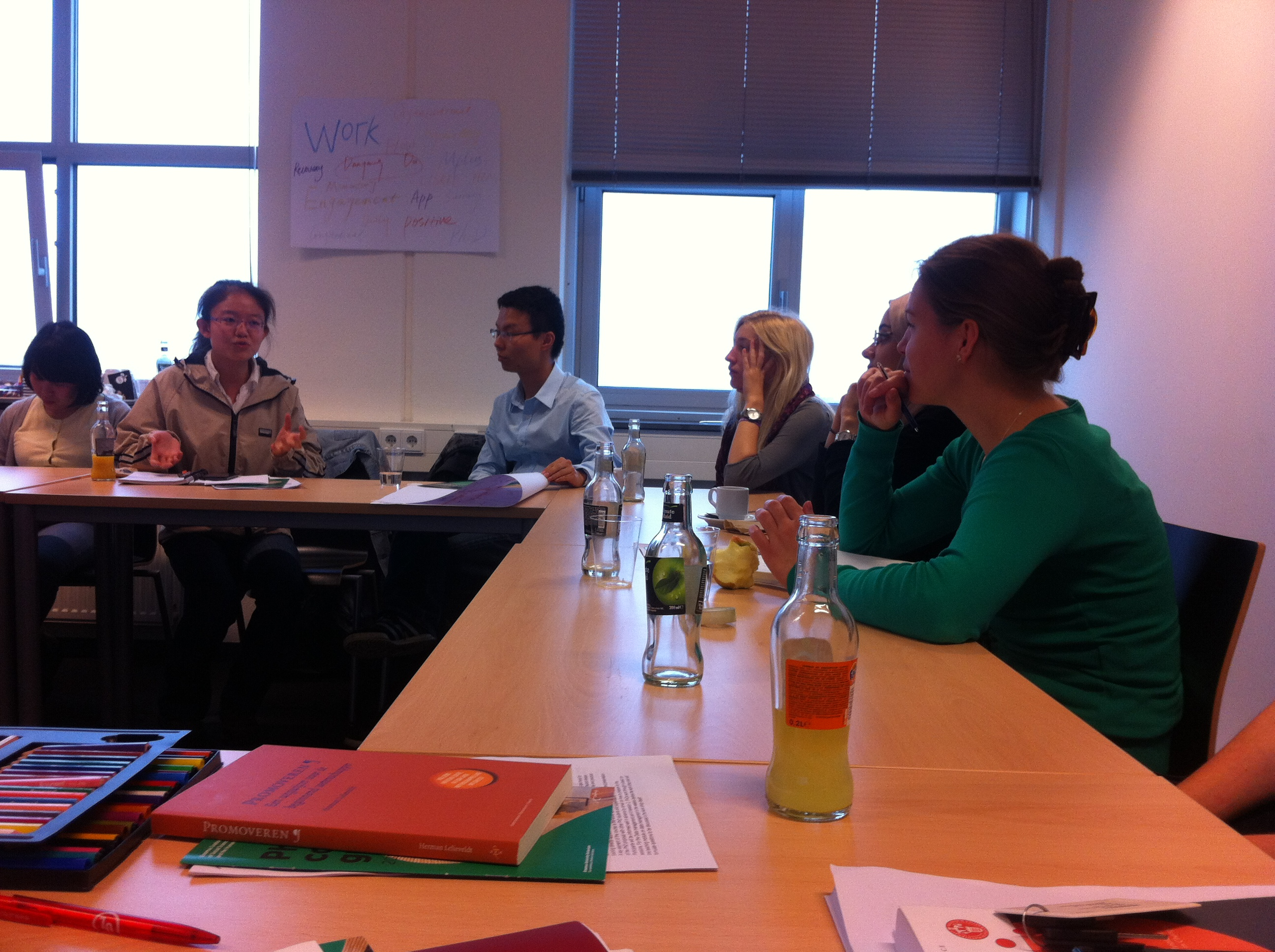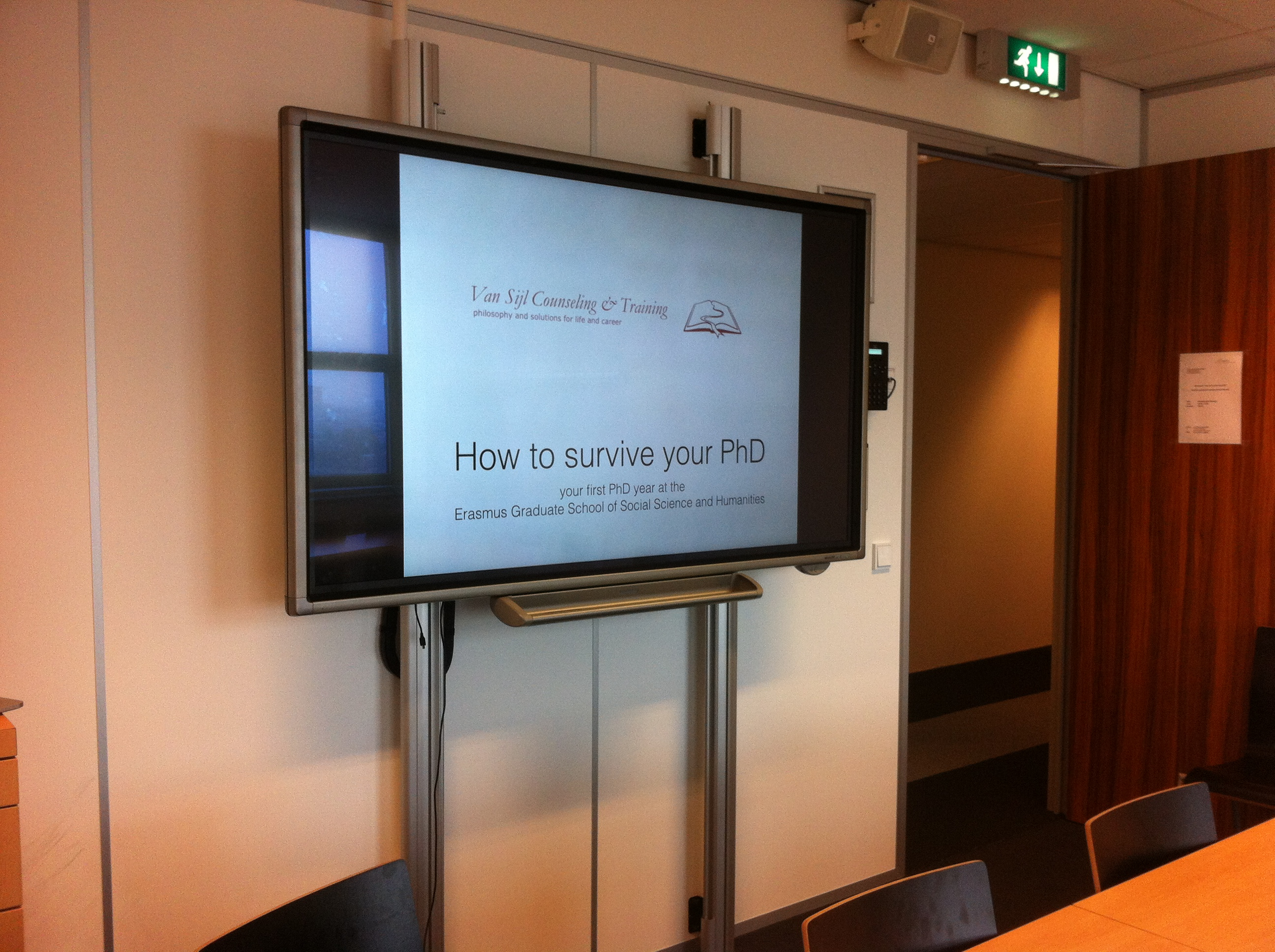How to survive your PhD
When you just started on a PhD project, where do you begin? A daunting task ahead, which questions to ask, what people to turn to, which techniques to master?
For PhD candidate at Erasmus University of Rotterdam in the field of social sciences or humanities the answer is: begin with the masterclass How to Survive your PhD.
Yesterday was the kick-off meeting of this training, which I mentioned earlier on this blog. Prof.dr. Van Zoonen, Dean of the graduate school EGS3H, introduced fresh PhD candidates to the ambitions and opportunities of the graduate school. Top priority of the school is fostering international and multidisciplinary exchange. This afternoon’s session has been exemplary of that ambition.
I am thrilled at the diversity of the PhD candidates that participate in the masterclass How to Survive your PhD. The group is multidisciplinary, ranging from psychology and sociology to public administration and development studies, and very international: besides the Netherlands, China, Vietnam, South-Africa and Saudi-Arabia are represented. Because of this wide variety of backgrounds we took our time for introductions. Everyone whipped up a nice poster to present himself and his research project. The exchange of ideas followed spontaneously with people offering suggestions, advice and critical questions to further develop the research proposals and research questions under construction, and even with potential beginnings of collaboration and cross-pollination.
We concluded the afternoon with a round table discussion on the question “What is ‘doing a PhD’?” For a successful approach to your PhD project it matters a lot whether you see it as a product (the completed thesis, the degree, the new knowledge developed, etc.) or as a process (e.g. the training of an independent researcher, a free intellectual activity sparked by curiosity, an initiation rite). To be precise: I think it is crucial that you are aware of these two perspectives towards the PhD and that you are capable of flexibly adopting whichever of the two is most helpful for moving forward with your project at its different stages. As we talked, the fresh EGS3H PhD candidates started to realize this as they thought about how they consider their PhD for themselves. One participant remarked that many candidates drop out of the PhD trajectory or end up with considerable delays. This is indeed a sobering statistic to be considered. But of course, having started your PhD project only weeks ago your ambitions and hopes are high. Many expressed their keenness to finish the PhD thesis or degree within four (or occasionally three) years, while some also emphasized the Bildungs-process they are looking forward to. We ended our conversation with the open question whether a PhD is for everyone. What does it take to successfully complete a PhD, besides being pretty smart?


Plaats een Reactie
Meepraten?Draag gerust bij!